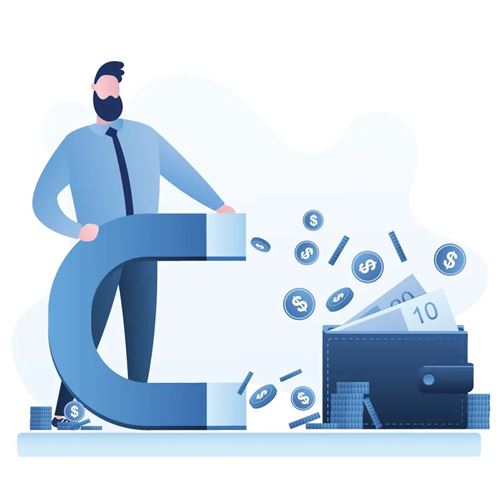It’s likely that one in one million that a majority of individuals don’t know who or such a ‘debt collector’ is; well, a minumum of one in certain thousands! When most economies faced recession and debts mounted, there are huge numbers of people still having undervalued assets who faced hardships facing rising costs and tackling debts that have mounted.
The introduction of ‘plastic money’ or Bank cards developed a huge marketplace even for someone without your money to visit out and look for things with out a care on the globe. Suddenly the buyer became “king” each bank or commercial agency was issuing credit cards to anybody who could substantiate some kind of income proof. Soon many found themselves indebted beyond their limited incomes.
That is where what you owe collector makes an entrance! A ‘debt collector’ is the saying used to indicate somebody or agency that frequently collects debts owed to creditors. Debt collection could be the practice completed by money lenders and creditors to secure payments from businesses and individuals which might be bound legally to settle money they owe. Every debt recovery agency or debt collection agency should know about the regulations involved along with the legal obligations involved with collecting debts.
Business collection agencies covers any unpaid bills or unpaid amount accumulated against personal payments like charge card account, vehicle loan or mortgages, doctor bills, household debts etc. This usually involves one particular individual known as collector or even an agency referred to as a collection agency. The process of such an agency that functions just as one ‘agent from the creditor’ would be to pursue debtors who owe sums of cash to creditors. They collect debts for a fixed fee and for an agreed percentage of the total sum owed by the debtor.
There are many types of business collection agencies agencies.
• First party agencies – they are often direct agents like paid employees or subsidiaries of the creditor (somebody or company)
• Alternative party agencies – these are generally outside agencies contracted with a creditor company or individual to pursue the debtor and collect the amounts owed; the services prepared for a charge.

In some cases, ‘debt buyers’ purchase delinquent debts with a pre-agreed area of the worthiness and after that contact the debtor to get it, usually having a mark-up each way to pay for costs.
Globally, every country possesses his own algorithm and regulations covering debt collection. Every country has applied consumer protection laws to safeguard consumers against malpractices by debt collection agencies. Several consumer protection agencies worldwide advise consumers and customers to be educated and accustomed to the laws concerning debts; ‘knowledge is power’ to safeguard oneself.
Regardless of laws finding yourself in destination to regulate debts and debt collections, installments of debt evasion by debtors and harassment by commercial collection agencies agencies are mounting. Collectors cannot engage in illegal or misleading practices for example deception and falsified specifics of how much cash owed indebted, pose as a lawyer or attorney, etc.
Common examples of harassment by debt collection agencies are:
• Annoying and repetitious messages or calls for the debtor or debtor’s family members
• Using obscene or rude language
• Threats of physical harm, violence or causing fright and anxiety by threatening a lawsuit
• Publishing information of debtors on the web
• Hiding their identity and infringing upon the privacy of your debtor
You can find regulations to make sure consumer safety and protection. If the debtor is dire financial circumstances, a third-party intermediary such as an advocate or attorney can liaise between your collector and debtor and go to a settlement scheme which is acceptable. If however, the buyer or even the debtor sues the collector for any violation under established laws and wins in a situation, what you owe collector will pay all attorney’s fees and then any damages caused on the debtor.
However, the best way forward wanted to a debtor is usually to know his / her debts fully, keep records of payments made and often maintain a means of communication with the collection agency to prevent unwanted anxiety and unpleasant situations.
To get more information about inkasso please visit site: web link.
